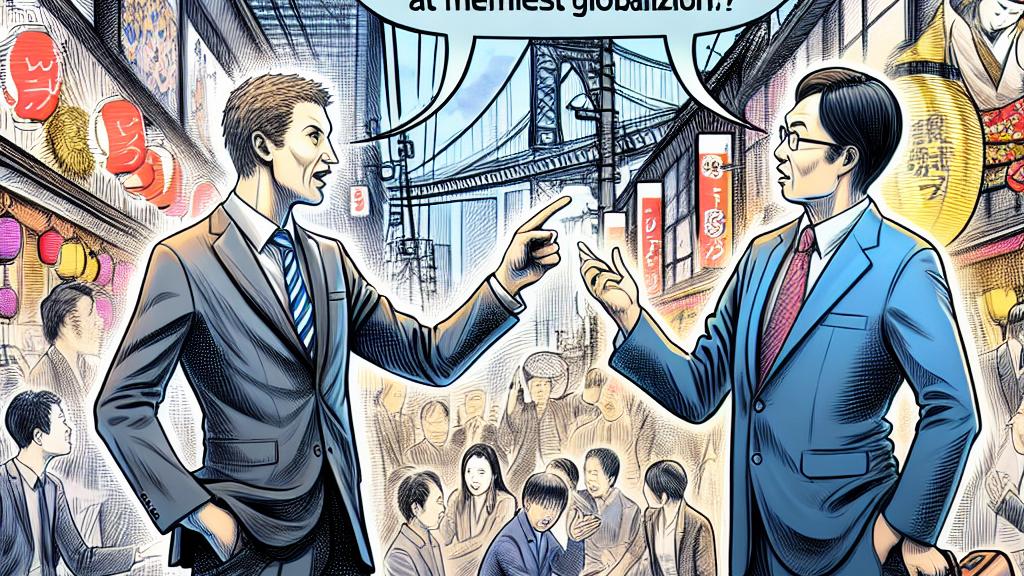The Battle of Opinions: Yusaku Maezawa Challenges Uniqlo's President on Japan's Economic Future!
Overview
- Yusaku Maezawa challenges Tadashi Yanai's views on Japan's economic strategy surrounding immigration.
- He emphasizes the importance of preserving Japanese culture as a path to national strength.
- Public reactions illustrate a divided sentiment on immigration versus cultural preservation in Japan.

Setting the Stage
In the heart of Japan, a robust discussion has surfaced between two influential figures in the business world: Yusaku Maezawa, founder of the successful fashion e-commerce platform ZOZO, and Tadashi Yanai, the CEO of Fast Retailing, operator of the globally recognized Uniqlo brand. On August 26, 2023, Maezawa voiced his opposition to Yanai's recent suggestions that Japan should embrace immigration and increase its intellectual workforce to combat economic stagnation. Yanai expressed deep concerns about the future viability of Japan’s economy, arguing that incorporating foreign workers could grace the nation with the necessary energy and innovation needed to revitalize it. Yet, Maezawa perceives this as a potential threat to the cultural identity that defines Japan, setting the stage for a multifaceted debate about the future direction of Japanese society amidst globalization.
The Case for Cultural Preservation
At the crux of Maezawa’s argument is a passionate call to maintain what he identifies as 'Japanese-ness.' He posits that the essence of Japan’s national strength lies in its unique cultural identity, which should be cherished and nurtured. He believes that rather than losing sight of Japanese traditions, the country must learn to emphasize and build upon its historical and cultural assets. Maezawa argues that an overwhelming focus on global integration could lead to cultural erosion, thus compromising the cohesive fabric that binds Japanese society together. By valuing and promoting distinct Japanese customs, language, and community bonds, he insists that Japan could thrive not through dilution but through solidification of its identity. Such preservation could foster resilience, encouraging unity and shared values in face of modern challenges.
Public Sentiment and Future Implications
The public response to Maezawa's assertion reveals a deeply polarized society engaged in the dialogue on immigration and cultural integrity. A significant portion of Maezawa’s followers resonates with his viewpoint, expressing concerns that excessive integration of foreign cultures may lead to a dilution of Japanese identity. Many believe that safeguarding traditional values is vital for Japan’s future, suggesting that by focusing inward and solidifying its cultural foundation, Japan can better navigate the complexities of globalization. However, there is also a faction that supports the idea of promoting immigration as a means to bolster economic growth while still maintaining cultural uniqueness. This debate not only highlights the contrasting opinions surrounding cultural preservation and globalization but also points to a critical moment for Japan as it contemplates how to evolve economically without losing itself in the process.

Loading...